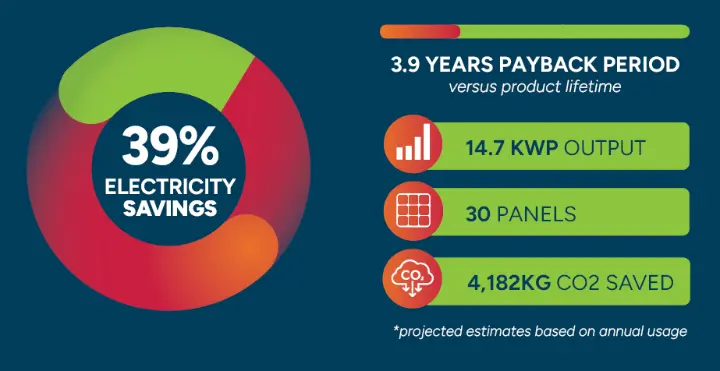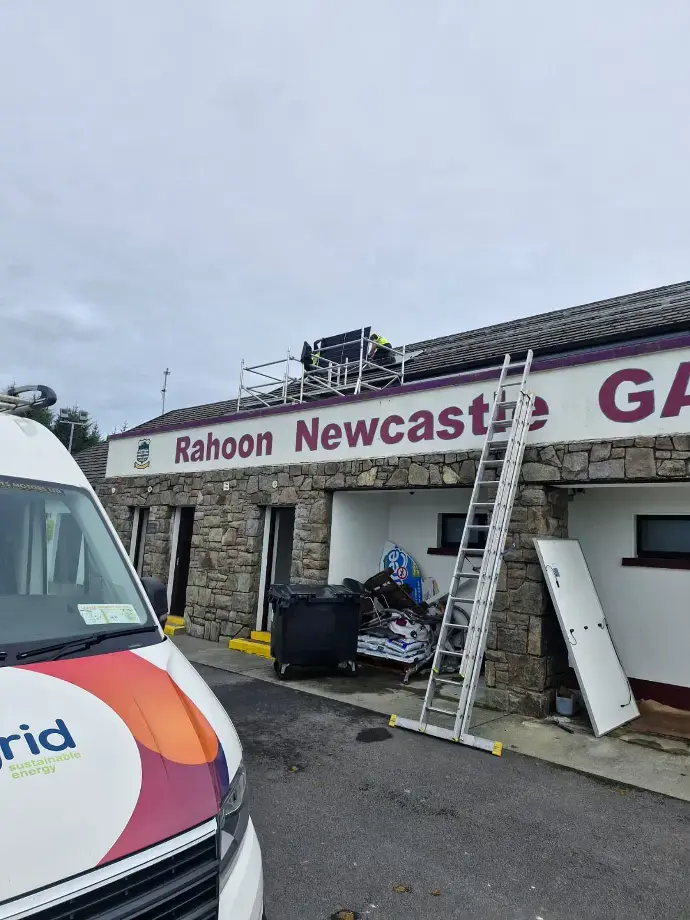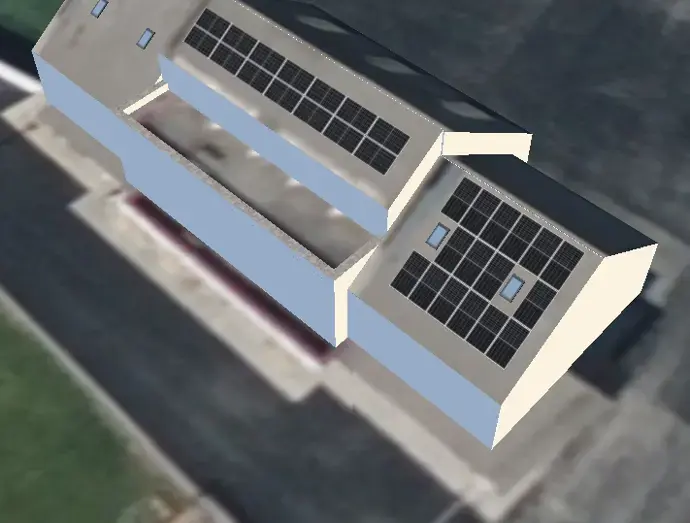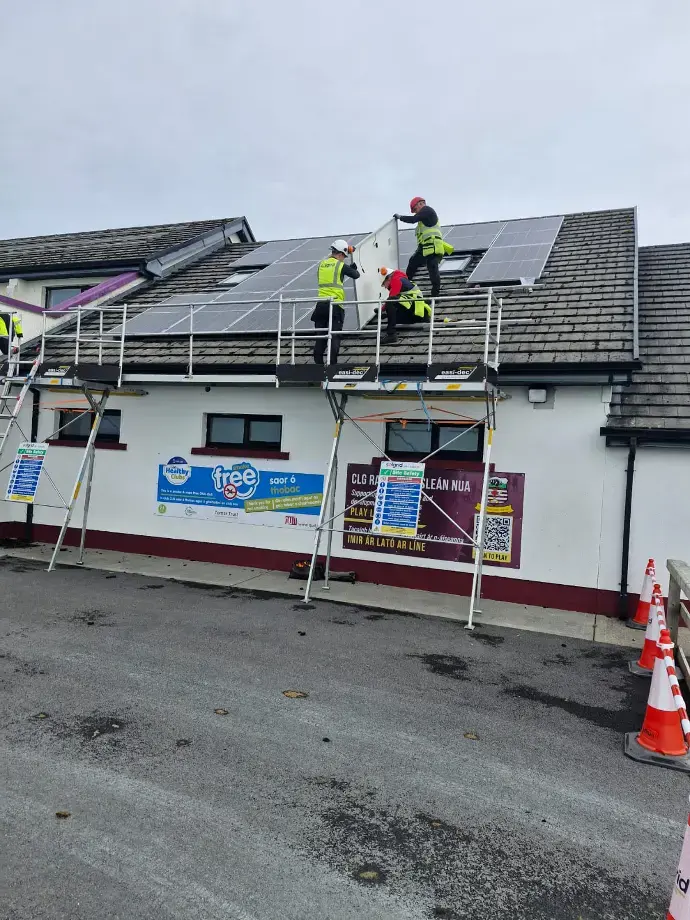Customer Objective
Background Rahoon-Newcastle Hurling Club, located in Thonabruckey, Co. Galway, has been serving its local community with a long tradition of hurling. With increasing energy costs and a strong commitment to sustainability, the club decided to explore Solar PV energy options to lower expenses and reduce its carbon footprint.
The Challenge The club’s facilities, which host various activities year-round, require a constant supply of electricity. High energy consumption and rising costs made it crucial to find a cost-effective and eco-friendly solution. The club wanted to reduce its reliance on grid electricity while continuing to support the energy needs of its members.
The Solution Solgrid installed a 14.7 kWp Solar PV system for the Rahoon-Newcastle Hurling Club. The system consists of 30 high-efficiency Q-Cell panels and a Fronius 10kW inverter, designed to operate efficiently in Ireland’s climate. The Solar PV system is capable of generating 12,567 kWh annually, which provides 39% of the club’s total energy consumption.
Similar project: Mullagh Community Centre
View the project brochure here

Project Goals
- Reduce Energy Costs: Lower the club’s annual electricity expenses through renewable energy and reducing the club’s reliance on costly grid electricity.
- Enhance Sustainability: Reduce the club’s carbon footprint, supporting their commitment to environmental responsibility.
- Increase Energy Self-sufficiency: Achieve significant energy self-sufficiency through the Solar PV system, ensuring a reliable supply of clean energy to support club operations year-round.
The system reduces grid electricity costs and will provide 39% of the club’s total energy consumption. The payback period is an impressive 3.9 years, supported by an internal rate of return (IRR) of 26%.
Project Benefits
- Cost Savings: The system reduces grid electricity costs and will provide 39% of the club’s total energy consumption. The payback period is an impressive 3.9 years, supported by an internal rate of return (IRR) of 26%.
- Environmental Impact: The system avoids 4,182 kg of CO₂ emissions annually, aligning with the club’s sustainability goals.
- Energy Self-sufficiency: The club achieves 41.7% energy self-sufficiency, decreasing its reliance on grid power and supporting long-term sustainability efforts.
Services Provided

Energy Advisory

Design Solution

Rahoon Newcastle GAA Club